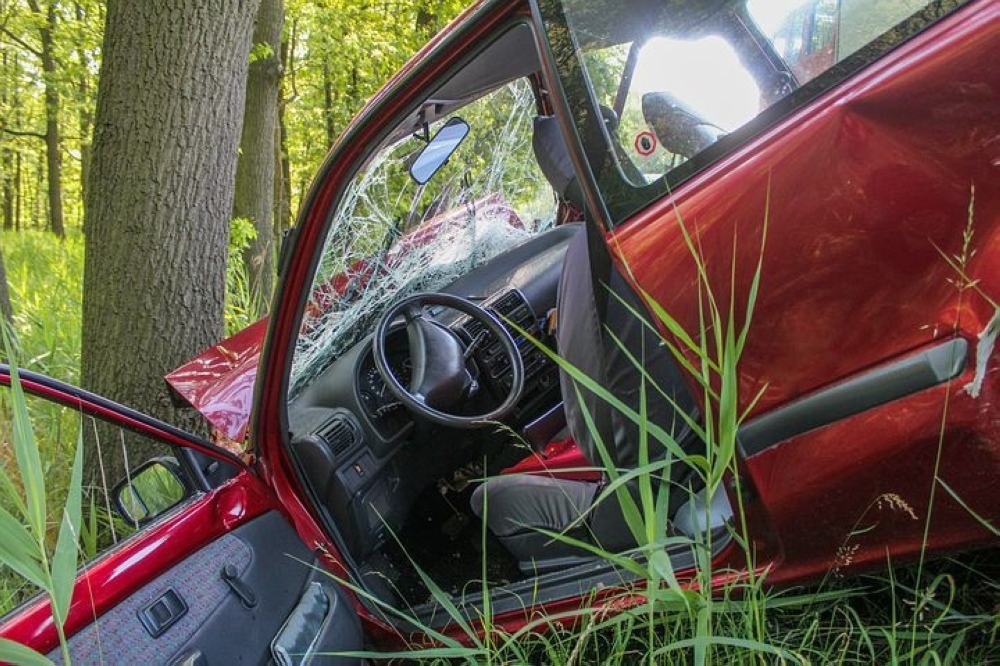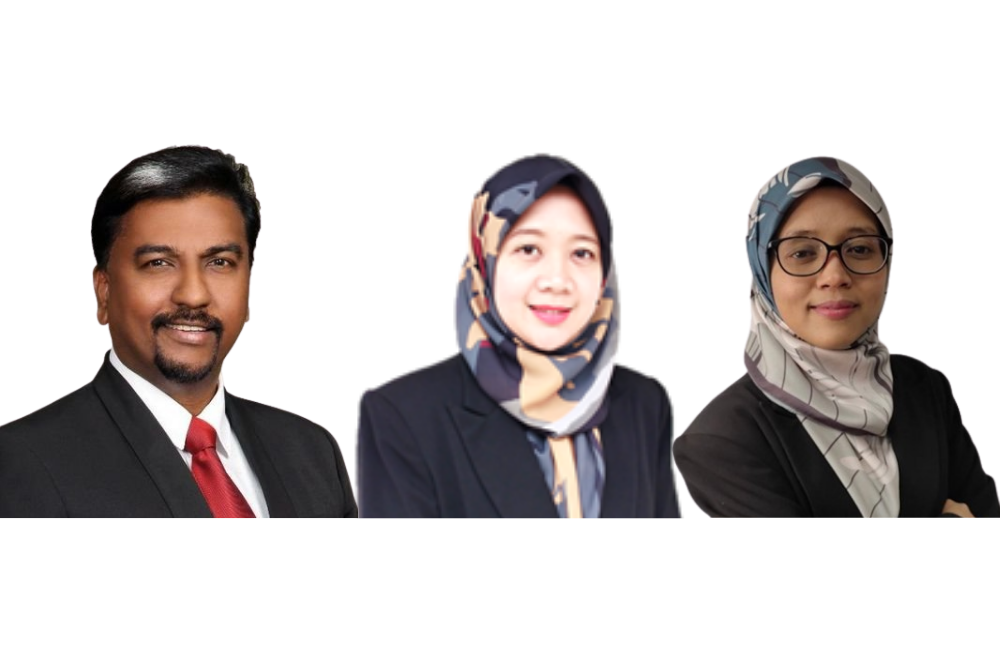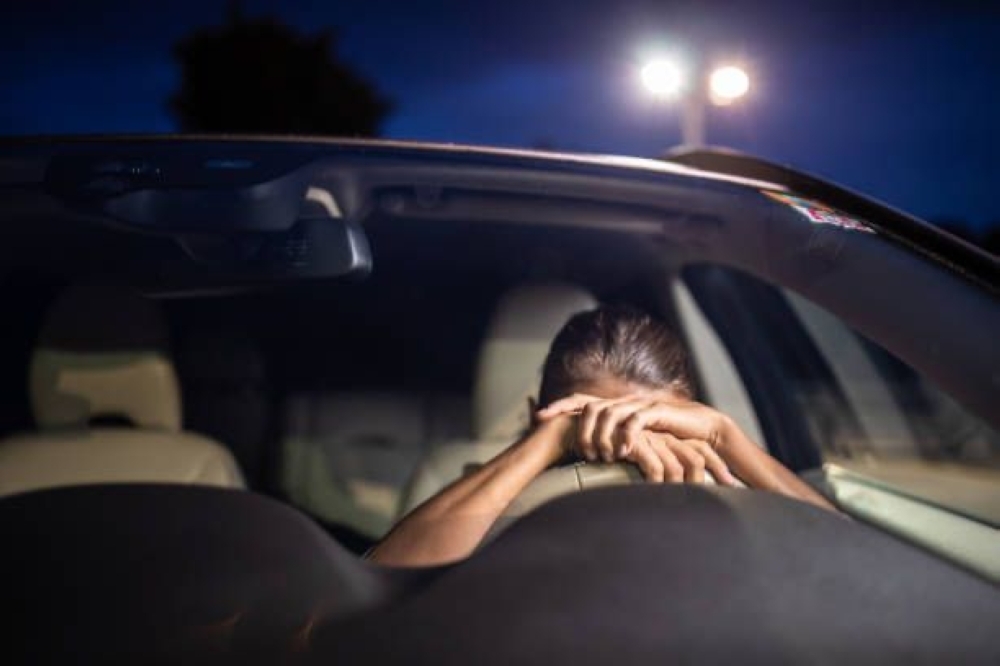Drive Safe: Microsleep could cost your life
The phenomenon often occurs to drivers who travel long distances with a straight road.

It has become somewhat of an annual event during the festive for stories of horrific accidents to make a big splash across the media sphere.
Based on data from the Malaysian Road Safety Department, from 2010 to 2019 saw an increase in cases during the Eid Fitri, more commonly known as Hari Raya, celebrations.
In 2010, there were a total 16,817 accidents reported followed by 2011 with 19,606 cases, 2012 (17,937 cases), 2013 (17,831 cases), 2014 (18,488 cases), 2015 (20,458 cases), 2016 (20,982 cases), 2017 (22,402 cases), 2018 (22,411 cases) and 2019 with 24,461 cases.
There are various factors for accidents occurring in which among them stems from microsleep.
Microsleep is a condition in where a person falls asleep for less than one to 30 seconds without realising it.
One of the incidents that stemmed from the situation occurred in July 2020, involving a university student named Amin Faizz who died after his motorcycle skidded in Linggi, Negeri Sembilan.
During the incident, the deceased was on his way back from Kluang, Johor to his campus in Serdang, Selangor.
For better awareness and knowledge on microsleep amidst the seasonal holidays now, we talk to experts on the matter.
No prior warning
Sleep Apnea Association of Malaysia President Associate Prof Dr Louis Adaikalam said microsleep is a short episode of uncontrollable sleep.
When such a process occurs, he said inputs from the senses of hearing and sight cannot be processed by the brain.
"It happens without warning and usually happens when a person drives a vehicle on a straight road. It can be triggered even with the driver's eyes open, but the individual is not aware of it,” he said.
He said the situation is more dangerous if someone is driving or operating machinery which has the potential to increase the risk of a more serious accident.
Microsleep, he said, can happen to anyone who suffers from sleep deprivation regardless of gender or age.
"Yes, this disorder (sleep) is common and can affect anyone in every social class and ethnic background," he told Sinar.
He said the quality of a person’s sleep also contributes to microsleep issues such as consistent sleep time and the number of hours allocated to sleep.
According to the Sleep Foundation, the United States (US), 18-year-olds to 64-year-olds need seven to nine hours of quality sleep, while those 65 and older need to sleep at least seven to eight hours a day.
Symptoms and warning signs that indicate you are about to experience microsleep and those things need to be monitored includes:
- Fatigue, yawning too often and fatigue
- Starts to lose focus and less reaction to something
- Feeling drowsy and the view becomes blank
- Suddenly startled and eyes blinked slowly
Awake on borrowed sleep
United State’s Cleveland Clinic Florida, Weston Hospital sleep specialist Samuel Gurevich said the most common cause of the phenomenon was due to lack of sleep.
"When we take or 'borrow' the time that should be allocated to sleep to do other things such as socialising, working or studying, the brain will remain tired and 'want the sleep that has been skipped'.
"Eventually, the brain will proactively put you to sleep and often it happens in dangerous situations such as driving," he said.
Even so, Gurevich said, not enough rest is not the only thing that makes the body 'crave' for sleep.
There are several other things that can trigger a microsleep episode including:
Drinking alcohol
Taking medications with sedative or hypnotic qualities such as antihistamines or sleeping pills
Having a medical condition that affects sleep such as sleep apnea or insomnia
Meanwhile, Healthline reported, among other causes of microsleep is from poor sleep quality caused by several physical and mental conditions. These include:
- Diabetes and blood sugar problems
- High blood pressure
- Obesity includes depressive crises and excessive anxiety

The power of power nap
Universiti Sains Islam Malaysia (Usim) lecturer and otorhinolaryngologist Dr Eyzawiah Hassan explains whether the quantity of food eaten after breaking fast triggers microsleep.
Firstly, she said the sleep cycle that is influenced by the ‘body clock’ (also known as circadian rhythm) can affect physiological and behavioral functions.
For example, she said individuals who fast will usually be more sleepy in the evening than in the morning.
“Besides that, the content or type of food during fasting and lifestyle during Ramadan also affects.
“In fact, there are also individuals who are more likely to sleep late and wake up earlier (during the fasting month) to perform circumcision rituals such as bertadarus and bertahajud.
"In conclusion, the feeling of drowsiness does not only take into account the factors of overeating during breaking fast and many other factors that influence," she said.
Dr Eyzawiah advised one of the best approaches in overcoming microsleep is to practice the concept of power nap.
She said a power nap is a short sleep during the daytime that lasts around 20 to 30 minutes, between 12.30pm to 1.30pm.
The practice, she said, can make a person come back feeling refreshed and energised in carrying out various activities afterwards.
“Power nap or in Arabic, qailullah is very good for the health of the body and is one of the sunnahs of Rasulullah PBUH. It also replaces the lack of sleep at night.
"This approach will indirectly give the body and mind a break for a while, in addition to being able to stimulate a better focus of the mind throughout the day," he said.
Dr Eyzawiah said studies have show how a power nap goes a long way in ensuring one is safe and sound.
She said results of a study by American psychologist from University of California Dr Matthew Walker showed a person’s logical and emotional reasoning improving with a power nap.
She added that another way to drive safely and steer clear of microsleep was to drive in the early morning after dawn because a person's cognitive rate is at its highest level in the morning and decreases in the evening.
"If you drive at noon, the heat and sunlight that is too bright can cause fatigue and can trigger microsleep," she said.

Does caffeine help?
Usually, for long trips, many will enjoy a cup of coffee to ensure that they will not be drowsy and on alert.
However, is this trick really effective?
Otorhinolaryngologist Dr Siti Asmat Md Arepen from Usim said it was true - a moderate caffeine intake can help improve focus and cognitive function.
Based on research, she said consuming 300 milligrams of caffeine twice a day will make a person more alert to the environment.
However, she said if taken in large quantities could possibly lead to dehydration.
“It should be noted that if taken in large quantities, it can cause an increase in the frequency of urination and subsequently lead to dehydration," she said.
Dr Siti Asmat said identifying the cause of microsleep as well as taking preventive measures is more important and effective preventive measure.
However, Dr. Gurevich's is much more direct and concise.
He said: "Don't rely on caffeine to keep you awake!"
Dr Siti Asmat said the same time, a high-calorie and unbalanced diet should also be avoided including eating medications that have drowsy side effects.
- Here are some tips to avoid microsleep shared by Dr Siti Asmat:
- Stay alert and active through how you interact with people around or other passengers.
- If driving alone, turn on the radio as a companion. Favourite songs can reduce drowsiness.
- Move the local body. For example, do shoulder and neck exercises.
- Take a short break next to a power nap if you are tired and sleepy.
- Taking turns driving is also encouraged.










